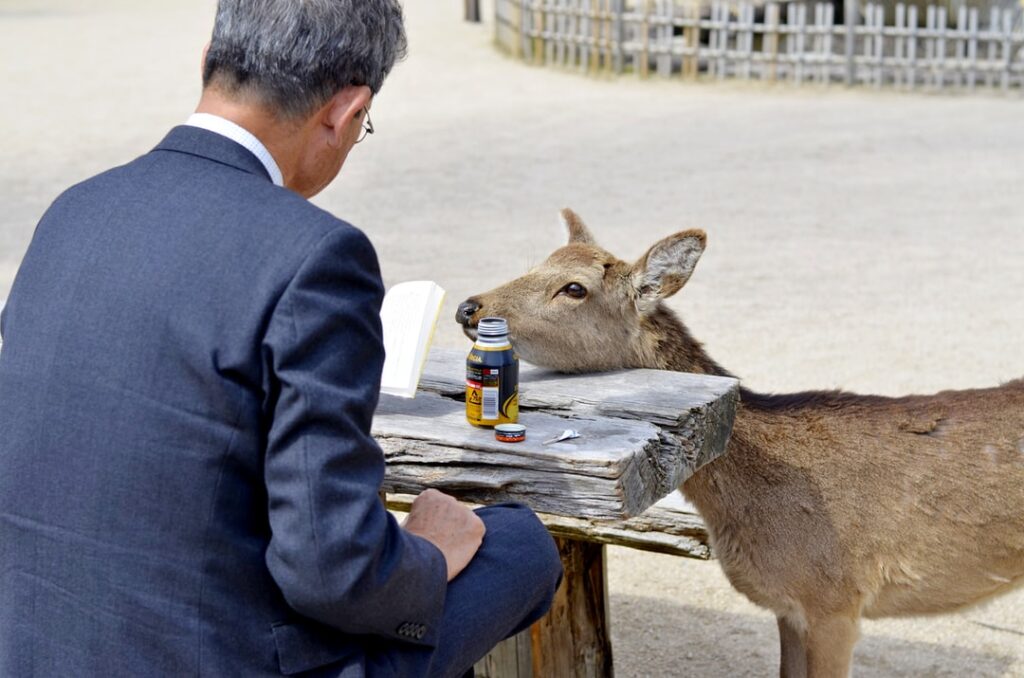The Japanese Expatriate
Written by Erich Ahorner

When I was working in the Japanese corporate world I quickly found out that the Japanese colleagues present on a 3-5 year assignment to the overseas operation, were not all the same.
Besides the different seniority levels and responsibilities depending on the department, there are 4 different prototypic positions of Japanese expatriates:
1. The Top Manager
2. The Worker Bee Manager
3. The Coordinator
4. The Trainee
Recognizing which of these 4 categories applies to a particular manager may provide clues to understanding his outlook and behavior and this will give you an advantage when dealing with them. However, depending on the organization and its size, some expatriates' positions will combine aspects of more than one of these categories.
1. The Top Manager
An assignment to a top post in a foreign office is often an expatriate's first opportunity to test his leadership skills. Some individuals bloom into excellent managers and enjoy the relative freedom of action that a post far from headquarters makes possible.
Others don't seem to know what to do when leadership power is put in their hands and are lost without consulting headquarters in Japan.
At some Japanese firms, top managers don't seem to be managing at all in the western sense of the word. Some Westerners complain that their top managers are not really engaged in the nitty-gritty of the operation's activities and appear to make little effort in that direction.
Some employees would describe their General Managers or Managing Directors as thinking of themselves as Royalty. "They want to go to ceremonies but they don't want to know what's going on." Such comments reflect in part the different role expectations that Westerners and Japanese have for senior managers. Japanese see senior managers as figureheads and facilitators, in contrast to many Westerners that expect the top person to do the leading and give the orders.
These situations may also reflect the frequent tendency of Japanese companies to view senior posts as semi-retirement, honorary positions.
Under such a view, the senior manager can enjoy the prestige of rank, while the middle managers get the actual work done. This mentality can sometimes even result in the feeling that an overseas office is a good place to banish a disliked senior manager, because it is presumed that he 'can do little harm' there.
2. The Worker Bee Manager
Worker Bee managers are the second tier below the top manager, although in smaller operations the Worker Bee manager and top manager role may be merged.
In traditional Japanese organizational style, these are the deputy managers who are expected to carry out the bulk of the work. This arrangement is reflected in the fact that Japanese top managers (bucho 部長, shacho 社長, shitencho 支店長, etc.) are described as being like “husbands” and deputy managers (jicho 次長) like "wives” - a reference to the traditional division of labor in a Japanese household, where the husband is nominally in charge but the wife holds the purse strings and makes all financial and purchasing decisions. The Worker Bee manager may be under a great deal of pressure from headquarters to establish a thriving new operation or to improve the lagging performance of an existing one.
The overseas assignment may be the test that will make or break his career. Or, in other situations, the Worker Bee manager may be in an operation that is perceived as unimportant, and therefore he is very concerned about getting back into the mainstream of the company at this crucial stage in his career. In either case, the Worker Bee manager is likely to feel that he has a lot at stake.
3. The Coordinator
As the term implies, the coordinator's main function is to act as an interface between the oversea operation and the company's operations in Japan.
The coordinator role is ambiguous, but it will always involve extensive communications with personnel in Japan. There are generally three coordinator roles.
The first is rather passive, acting as a quiet observer of the overseas operations and reporting back to Tokyo. Such coordinators are often regarded by Western colleagues with curiosity because they seem to be doing very little, or because their activities are unexplained.
The Second type of coordinator is an intermediary between American employees and those in Japan when headquarters input is required for US activities. In this role, the coordinator is a combination translator and cross-cultural negotiator.
The third type of coordinator has a de facto decision-making role - he either makes decisions himself or acts as a conduit for decisions made in Japan. This third coordinator role in particular can lead to misunderstandings and friction.
4. The Trainee
Trainees are young (under thirty-five) employees who have been sent to the overseas operation to gain experience. This is generally part of the typical Japanese human resource development practice of rotating employees through a large number of areas for on-the-job training in order to create well-rounded generalists.
“Overseas” has joined the list of “Sales","Administration","Product Development", and other areas that young fast-trackers are expected to experience in order to become promotable. Although in some companies these employees are clearly identified as being there for the purpose of learning, in others they are given operational or managerial positions.
The latter category can be problematic, as inexperienced young expatriates may be placed in management positions beyond their capabilities and may expect the American employees to act as their teachers.
In the past, I have heard complaints like "our managers are our link to Japanese culture and the company’s sales process, but they usually don't understand what they are doing. We have to spend a lot of time just teaching them about our work. It's very difficult and frustrating".
Another comment ,"It seems like our role is to educate the Japanese managers for a short period of time so they can move on to something else" may have hit the nail on the head.
This "trainee" mentality can extend beyond younger expatriates to older ones as well, especially since many expatriates are unfamiliar with the specifics of their assigned position in the overseas operation.
The Bottom Line
If your Japanese contact at rotated either back to Japan or to another area, the transition between him and his successor can be a critical inflection point in your business with that Japanese company. Many foreign business partners of Japanese companies find that a great relationship they enjoy suddenly suddenly deteriorates when a new Japanese expatriate arrives. On the other hand if you handle the situation skillfully, a transition to a new contact can be an opportunity to improve your business growth.
If you want to know how to bring your product/service to the attention of the right Japanese contact, explaining the benefits for his specific business goals to lead your business to sustainable success in Japan, schedule a call here.

Erich Ahorner
Erich Ahorner helps people enter the Japanese market and grow their businesses. He is an expert at helping people with market entry using online and offline methods and trying to break down necessary steps to make things simple to understand. If you're interested in growing your business or entering a new market to and increase sales then definitely reach out and request a free strategy session today.
Menu
